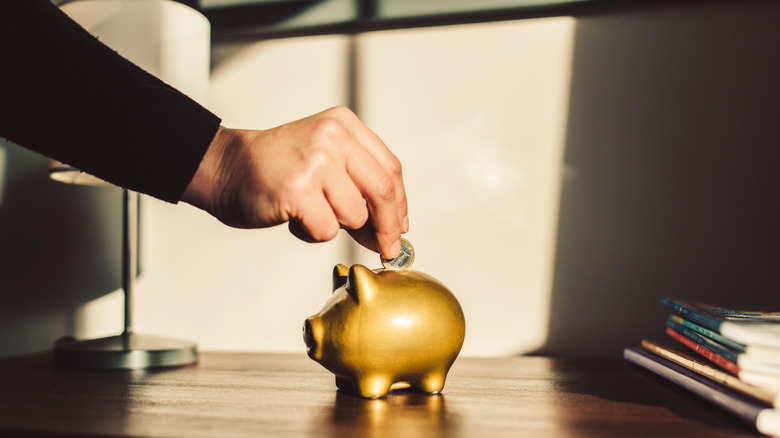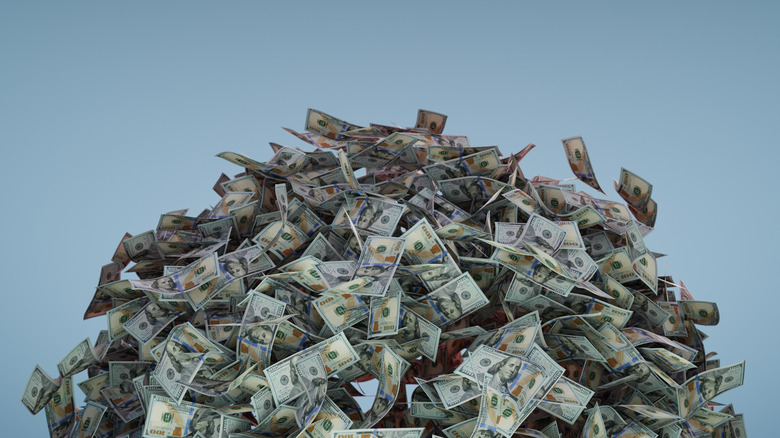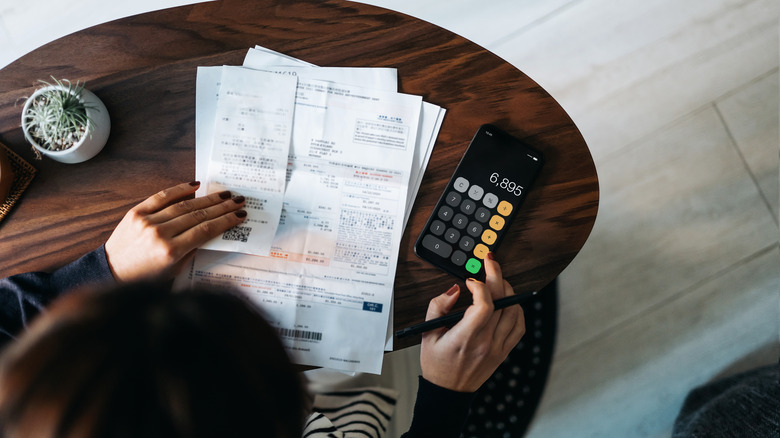This Is How Much Money You Should Keep In Your Checking Account At All Times
Your checking account is the financial hub of your everyday life. It's where your paycheck lands, your bills get paid, and, occasionally, where you write an actual check. But keeping the right amount of money in it is a balancing act that can have a significant impact on your personal finances. Maintaining an appropriate balance isn't just about convenience; it's also a financial safeguard. According to CMBC's Make It, the sweet spot to keep in a checking account is about a month's worth of bills, plus a small buffer to act as a cushion for unexpected charges and to avoid costly overdraft fees and bounced payments.
Determining the right amount to keep in a checking account depends on several factors, including monthly expenses, spending habits, and financial goals. But before diving into the numbers it's also important to understand why keeping too much money in your checking account may not be the best approach.
The risk of keeping to much or too little money in your checking account
Keeping too little in your checking account can lead to costly fees like overdrafts or monthly servicing fees, but holding too much cash there can also limit your financial growth. When funds sit in a checking account, they typically earn no interest, meaning your money isn't growing. Some individuals even suggest that keeping money in non-interest-bearing accounts can effectively result in a loss of purchasing power over time due to inflation.
Rather than holding all your excess cash in a checking account, many people choose to distribute their money across different accounts. Most banks offer savings accounts that accrue interest, some at higher rates than others, but storing additional cash in savings instead of a checking account may generate some additional income. Other options include using certificates of deposit (CDs), although these require you to keep your money deposited for a specific period. Finally, money may also be placed in a brokerage account to potentially enhance your personal finances, though this option carries higher risk and no guarantee of returns.
How to figure out the right amount to keep in your checking account
There is no one-size-fits-all amount that you should keep in your checking account. The specific amount is determined by knowing your monthly expenses. Start by calculating all your essentials like rent, mortgage, utilities, groceries, and debt payments. This is your baseline number for your regular expenses. If you use your debit card for personal purchases, you may want to keep a bit more in your checking to avoid going into a negative balance.
After adding up your expenses, consider adding an extra 30% of that amount in your personal checking account to act as a buffer. This will protect you from unexpected charges like a forgotten subscription. Finding the right amount of money to keep in a checking account is a process and one that is likely to shift over time. It is important to keep an eye on your account and reassess your income and expenses to determine if you need more or less money in your checking account.


